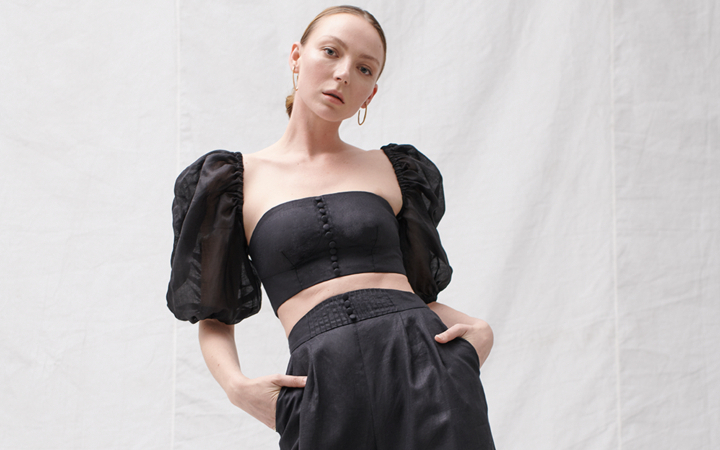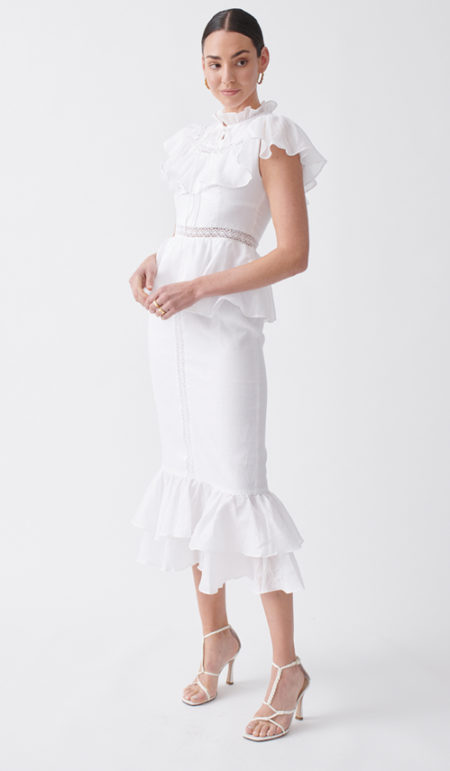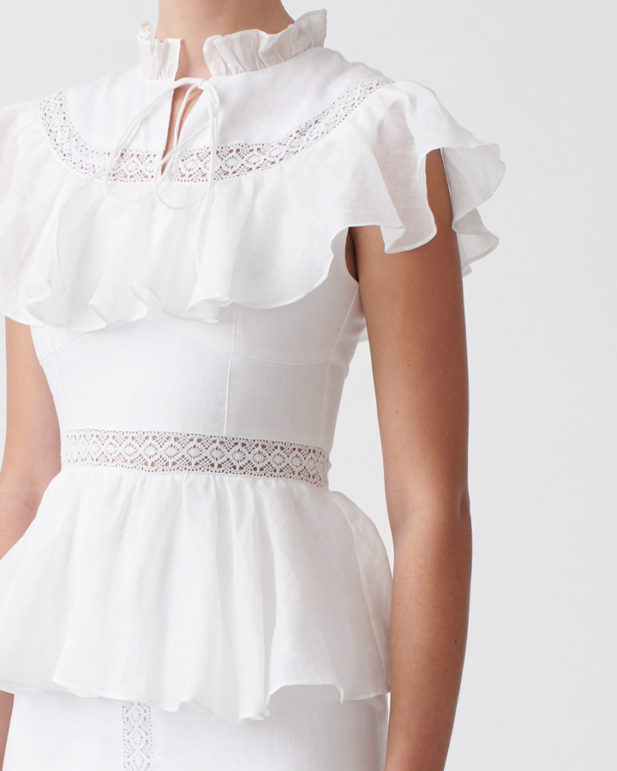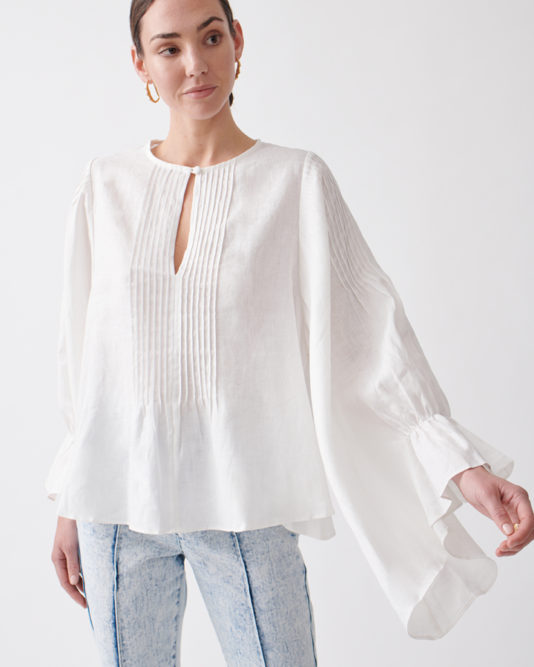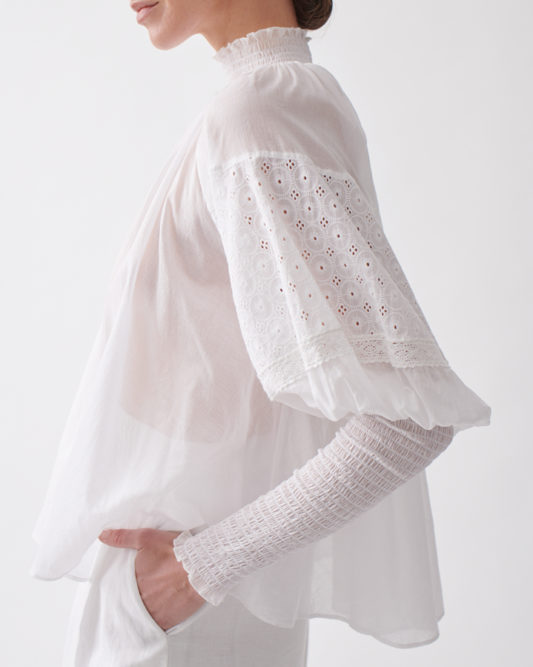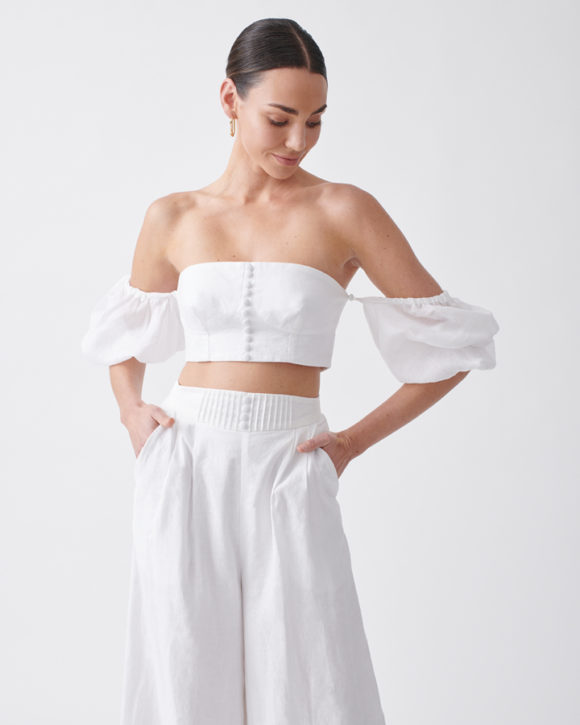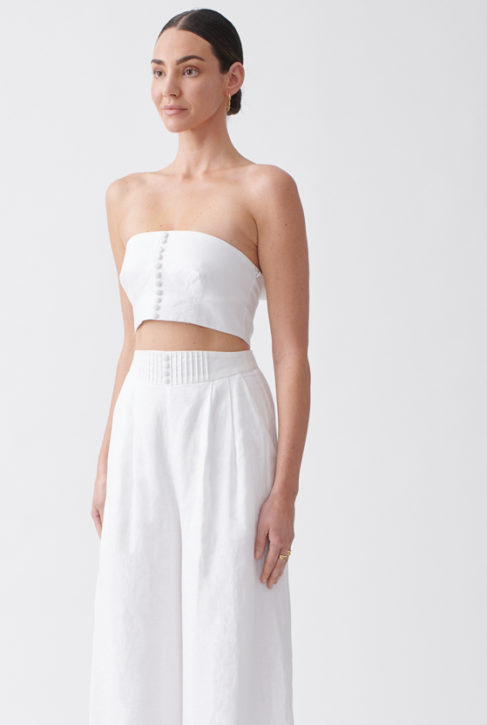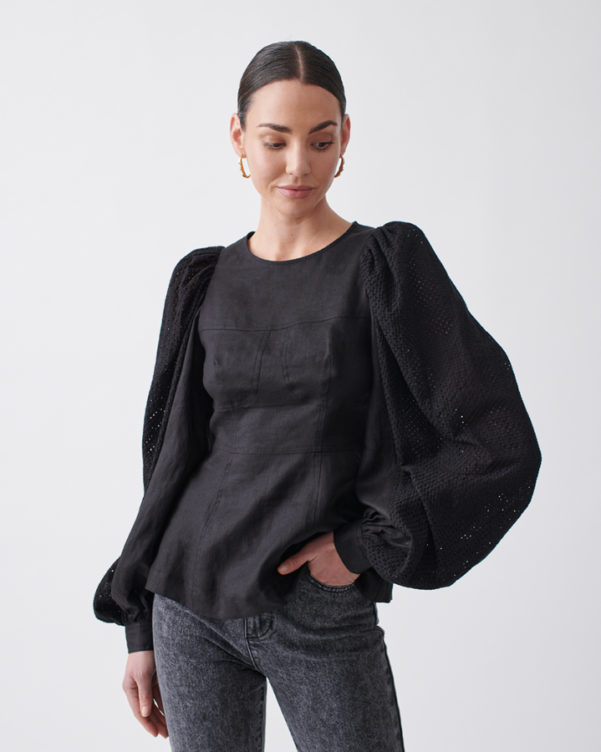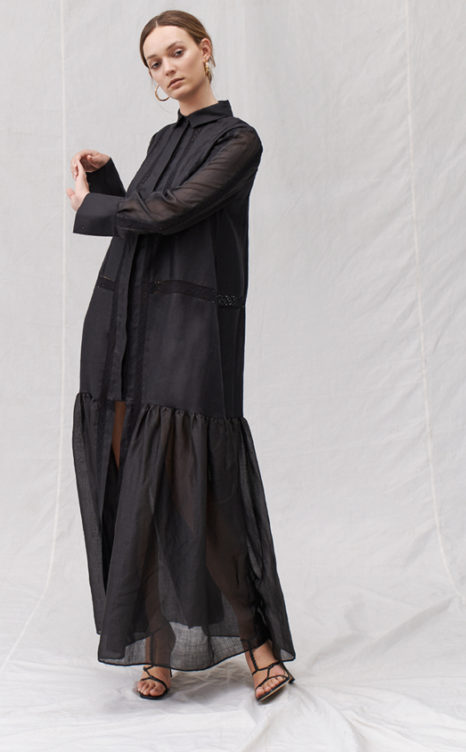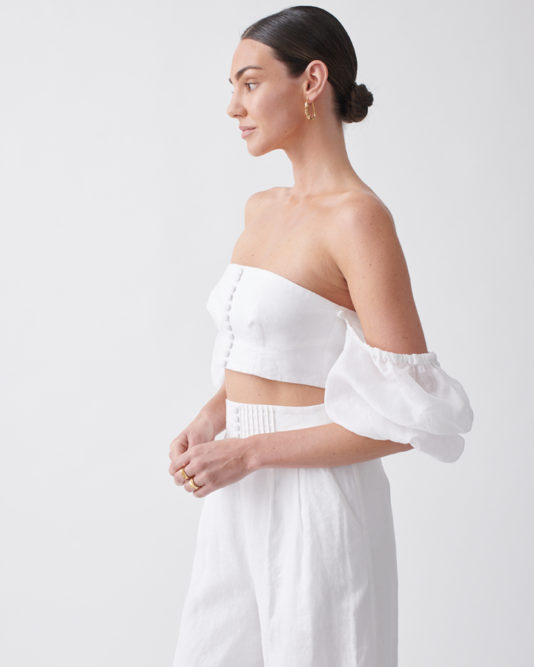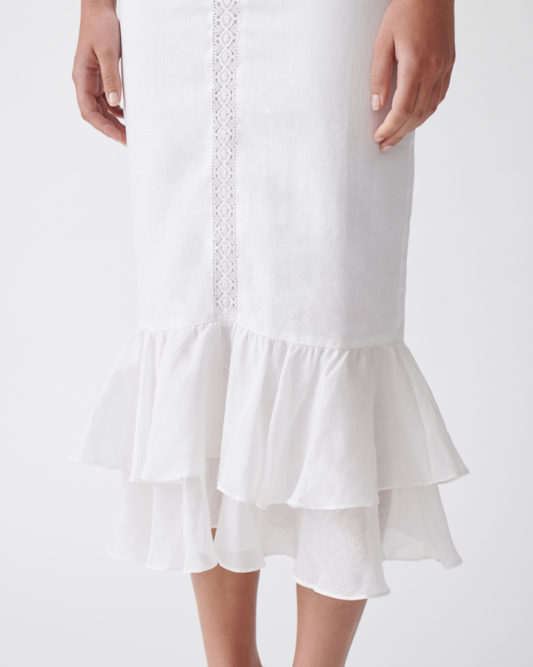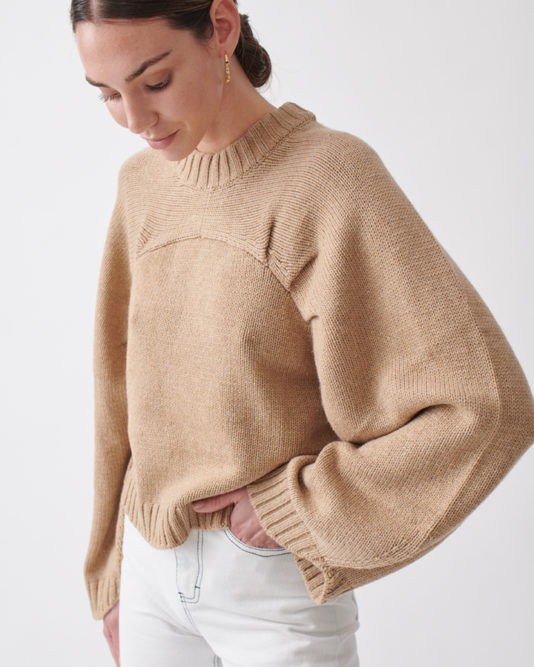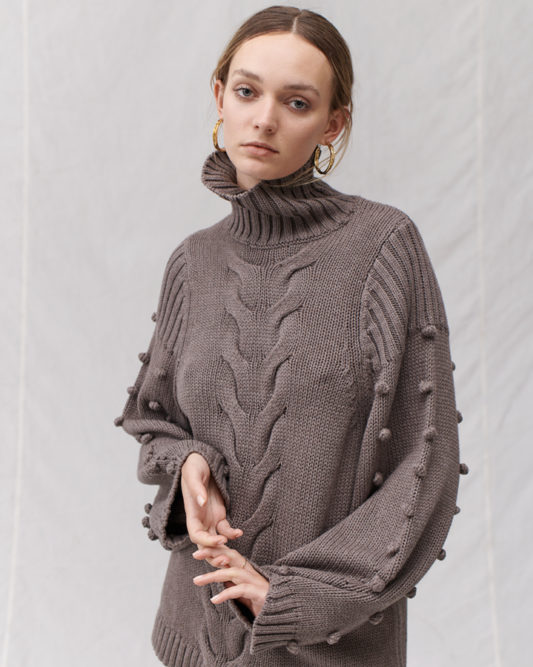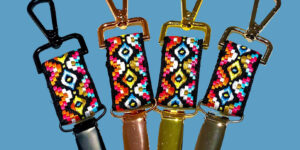Australian brand Joslin was founded by designer Elinor Joslin in only 2018, but since then has become one of the country’s most popular sustainable fashion labels.
The brand’s aesthetic is based on the designer’s artist parents and features feminine details like smocking, ruffles, pintucks and buttons in Joslin’s signature linen. But what the brand is really known for is its comprehensive dedication to producing sustainable and ethical fashion.
The brand’s site lists in detail anything and everything you want to know about how the clothes are produced. Elinor is aware that the label has only begun its journey towards being a completely sustainable brand, so prefers to describe Joslin as a “conscious” brand, and being “committed to the improvement of sustainable processes with every collection, and to provide further transparency and accreditation as her business grows from an emerging designer brand into an established sustainable designer brand”, as her website states.
Elinor “believes that much of the Fashion Industry as it currently stands, is a cycle of planned obsolescence and synthetic landfill. Fashion itself is a business model of creating and selling new products that are made from the earth’s resources, only to be worn once or a few times before becoming obsolete.”
Conscious, considered clothing
Joslin then is part of the Slow Fashion movement. “Being conscious, being considered, making responsible choices, encouraging positive change, pushing for transparency and always evolving in ways to lighten one’s ecological footprint is both a brand and consumer’s best foot forward to a sustainable fashion industry,” says Elinor.
This translates into using textiles and yarns that are “planet friendly and traceable to the source wherever possible”. These fabrics are ramie, silk, wool, cashmere, cotton, and of course, linen. Getting hold of these fabrics, however, isn’t as easy as you may think.
“Fabric minimums are a major challenge for small-business designers. Due to the fashion industry’s lower demand for sustainable fabrics, pricing and minimum order quantities are in so many cases unattainable,” explains Elinor. “As an Australian brand Joslin faces many barriers in price, quality and scalability for many bio-based, certified and innovative alternative textiles. Instead, for now, the business focuses on natural fibres and naturally occurring sustainable fibres.”
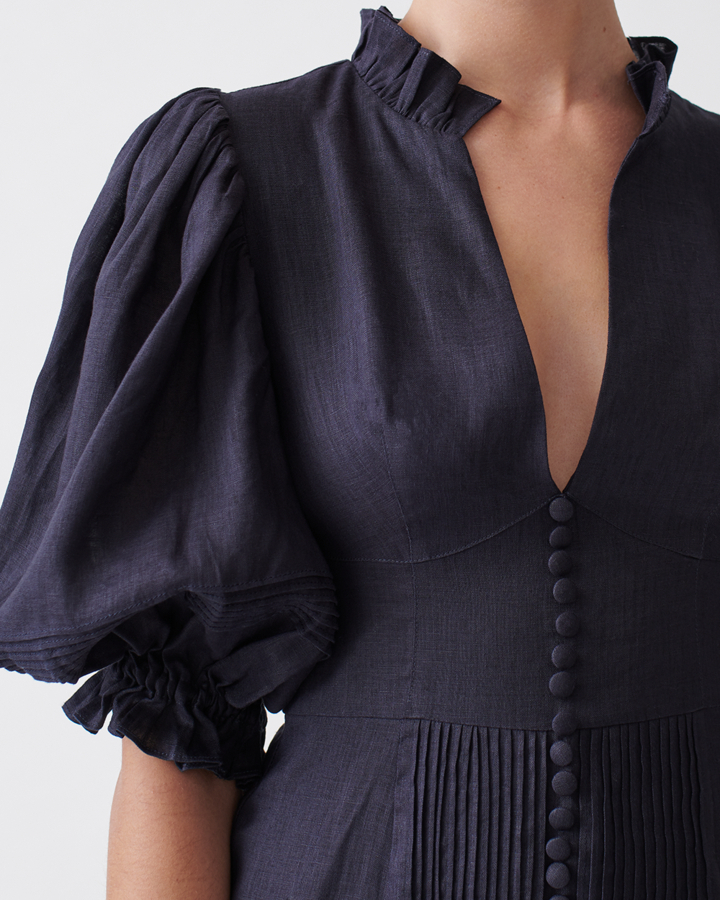
About 70% of Joslin’s pieces are made of linen, the brand gets its linen-flax from the Normandy region of France; then the combed flax is imported to Jiangsu, China, where it is spun. According to Australian brand Joslin, “linen uses approximately 90% less embodied energy in its manufacture than polyester -‘fast fashion’s’ most common fabric – and is long lasting and durable in the wardrobe.”
Elinor believes “the world urgently needs to lower the usage of fossil fuelled textiles and move towards textile-to-textile recycling if fossil fuelled textiles are to be of continued use.” Despite this, the brand does use some synthetics and plastics, but only when there is “no natural alternative, or when it benefits the natural composition”.
Still, this is not for lack of desire. “In garment production, it is not always possible to avoid synthetics and plastics – buttons, zips and fusing’s are the benchmark of standard manufacturing and garment construction. There is currently no natural alternative that is commercially viable for fusing,” says the brand’s website.
However, the Joslin knitwear collection makes use of pre-consumer recycled nylon, because it helps the knits to be stronger, so that it will last even longer. The brand also uses manufacturers and dyers that meet the OEKO-TEX® 100 STANDARD which is 100% free from over 100 harmful chemicals that are recognised as being harmful for humans.
The brand’s packaging is eco-friendly with 100% compostable bags, 100% recycled tissue paper, card and paper, plus all of the international e-commerce orders are carbon offset through the DHL GoGreen Climate Neutral shipping service. Even the garments exported from China come in 100% compostable plant-based satchels.
You can read all about the full complement of actions that the brand takes to ensure that it is as ethical and sustainable as it can be on the website.
The Slow part of the brand’s production is the reduction of overproduction and ensuring the garments are seasonless, with a sense of longevity – no piece is ever designed to only be worn once according to Elinor. This is why she focuses on traditional detailing combined with ways to wear the garments in more than one way, and sticks to a minimal palette of neutral shades.
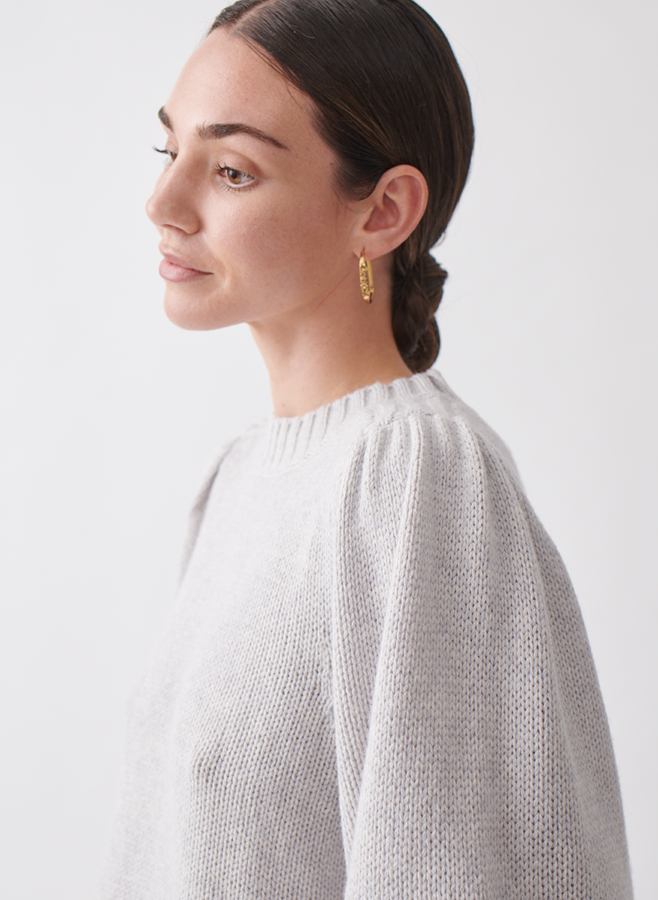
There is a touch of the #cottagecore movement to Joslin’s style with the use of natural fabrics, ruffles and loose-fit cuts, but it is elevated by the traditional detailing and the sexiness of deep-v necklines and transparent inserts.
Joslin is a brand well worth keeping an eye on.
You can buy Joslin online at joslinstudio.com and follow the brand on Instagram at @joslin_studio
This article was first published on www.nikibruce.com

